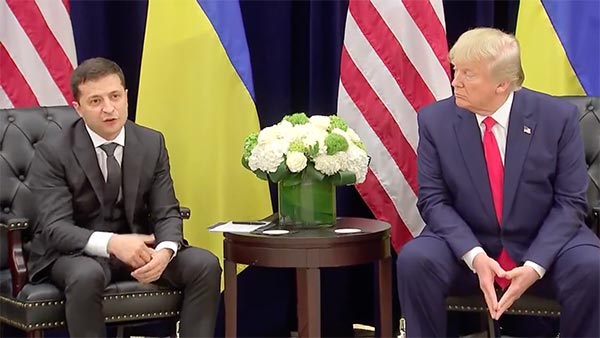
- John Perkins discusses how China’s strategic investments in infrastructure and trade are reshaping global power dynamics, surpassing U.S. influence.
- Perkins contrasts China’s infrastructure-focused approach, which promotes economic growth without debt traps, with the U.S.'s coercive economic policies that increasingly alienate nations.
- The U.S. weaponizes the dollar through sanctions, harming ordinary citizens and pushing countries toward China, which is promoting its currency and alternative financial systems to reduce dollar dominance.
- China’s technological advancements, including AI, are outpacing the U.S., and Perkins advocates for collaboration rather than competition, warning against technological and economic isolation.
- Perkins calls for a shift in U.S. foreign policy toward cooperation and mutual benefit, emphasizing the need to address global challenges like climate change and economic inequality to shape a positive future.
In a recent interview, John Perkins, the author of Confessions of an Economic Hit Man, delves into the shifting global power dynamics as China surpasses the United States in economic influence. Perkins, a former chief economist at a major U.S. consulting firm, shares his insights on how China’s strategic investments in infrastructure and trade partnerships are reshaping the global economy. He warns that the U.S.'s reliance on military interventions and economic coercion is backfiring, driving nations toward China.
The rise of China and the decline of U.S. influence
Perkins, who has spent decades observing and participating in global economic strategies, begins by recounting his role as an "economic hit man." His job was to identify countries with valuable resources and arrange large loans from organizations like the World Bank. However, the money never reached the intended countries; instead, it funded U.S. corporations to build infrastructure that primarily benefited the wealthy, while the local populations were left in debt and poverty.
Perkins argues that the U.S. approach, which he calls the "debt trap," has been increasingly ineffective. He contrasts this with China's strategy, which focuses on building infrastructure like ports and railways through initiatives like the New Silk Road. China's approach is more appealing to developing nations because it promises economic growth and integration into a global trading network without the strings attached to U.S. loans.
The weaponization of the U.S. dollar
One of the key tools of U.S. economic coercion is the weaponization of the dollar. Perkins explains that the U.S. has a history of using economic sanctions to isolate countries like Russia and Iran. However, these sanctions often harm ordinary citizens more than they hurt the leaders. Moreover, the U.S. dollar's status as the world's primary trading currency allows it to impose sanctions with global reach.
China, recognizing the vulnerability this creates, is actively working to undermine the dollar's dominance. It is promoting its own currency in international trade and investing in alternative financial systems, such as the BRICS bank. Perkins warns that the U.S. is losing its economic leverage, and the unintended consequences of its aggressive policies are pushing more countries toward China.
The future of global power dynamics
Perkins and Adams discuss the broader implications of these shifts. They note that China's economic growth over the past three decades has been unprecedented, lifting 900 million people out of poverty. While this growth has come at a social and environmental cost, China's narrative of economic success is compelling to many developing nations.
The U.S., on the other hand, is increasingly seen as a bully on the global stage. Perkins highlights how U.S. foreign policy, including the threat of military intervention and economic sanctions, has alienated many countries. He suggests that the U.S. needs to adopt a more cooperative approach, focusing on building partnerships and helping other nations develop their economies.
The role of technology and AI
The interview also touches on the technological front, where China is making significant strides. Perkins notes that China is not only competing with the U.S. in traditional industries but is also leading in areas like artificial intelligence (AI). He points to the recent release of a powerful AI model by a Chinese company, DeepSeek, which outperforms many U.S. models at a fraction of the cost.
This technological competition is another front where the U.S. is losing ground. Perkins argues that instead of trying to stifle China's technological progress, the U.S. should seek to collaborate and benefit from it. The alternative, he warns, could lead to a technological and economic isolation that would harm both countries.
A call for a new approach
In conclusion, Perkins and Adams call for a fundamental shift in U.S. foreign policy. They advocate for a more cooperative and less coercive approach, one that focuses on building mutually beneficial relationships and addressing global challenges like climate change and economic inequality. Perkins emphasizes that the U.S. still has the opportunity to set a positive course for the world, but it must recognize the changing global landscape and adapt accordingly.
As the interview comes to a close, Perkins leaves a final thought: "We live in a blessed time in human history, and we have the power to shape the world we want to leave for future generations. The choice is ours, and the time to act is now."
Watch this full episode of the "Health Ranger Report" with Mike Adams, the Health Ranger, and John Perkins as they talk about U.S. economic decline as China rises.
This video is from the Health Ranger Report channel on Brighteon.com.
More related stories:
An urgent call to tackle U.S. dependence on China’s industrial diamonds
America on the brink of COLLAPSE after decades of systemic decline
Sources include:
Please contact us for more information.






















